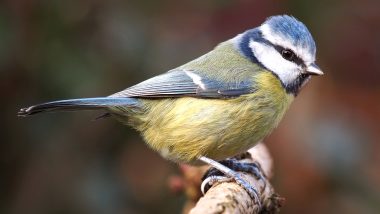The world is in a pandemic at the moment, forcing humans to stay indoors and follow social distancing as much as possible. While we battle the spread of coronavirus that has created panic among individuals, scientists are now warning bird feeders to maintain social distancing. Why? A pneumonia-like disease is thought to be responsible for the death of thousands of blue tit birds in Germany. Laboratory tests that were reportedly performed and confirmed a bacteria called Suttonella ornithocola, found in thousands of Eurasian blue tit birds affected by the illness. With the study, scientists are now encouraging bird feeders to be cautious as it has the potential to transmit to humans and infect them as well. Don’t Hate Bats and Pangolins During This Pandemic! Here’s Why We Should Know the Importance of These Animals.
How to identify if the bird is suffering from the disease? According to the German conservation group NABU, the Suttonella ornithocola symptoms include loss of appetite, breathing problems and ungroomed feathers. Garden feeders have helped in boosting populations of dozens of bird species including the blue tit, whose numbers have reportedly increased by 26% in the last 50 years.
Garden birds are known to carry the infectious virus, bacteria and fungi. These microbes are said to be zoonotic, which means they could spread to humans. As per studies and various reports, Suttonella ornithocola was first isolated from the lungs of a blue tit in the 1990s and has since been found in other tit species. However, the blue tit is said to be most susceptible. In the United Kingdom, about 13 percent of blue tits died during spring because of the disease. Scientists are hence encouraging the bird feeders to be extra cautious and help prevent the spread of the disease.
How to Stay Safe While Feeding the Birds?
- Clean and disinfect the bird feeders on a daily basis.
- Use separate utensils for cleaning the feeders and avoid bringing them in the house.
- Move your feeders to a new location, at least once a month to prevent the accumulation of faeces and food remains underneath.
- If you have water containers, they must be rinsed out daily.
- Purchase food from safe sources.
The Eurasian blue tits are found significantly across Europe and are one of the most frequent visitors in the UK gardens. They eat insects, caterpillars, seeds and nuts and can be spotted all year in the UK. The birds are famous for their skill, as they can cling to the outermost branches and hang upside down when looking for food.
(The above story first appeared on LatestLY on Jun 05, 2020 09:32 AM IST. For more news and updates on politics, world, sports, entertainment and lifestyle, log on to our website latestly.com).













 Quickly
Quickly


